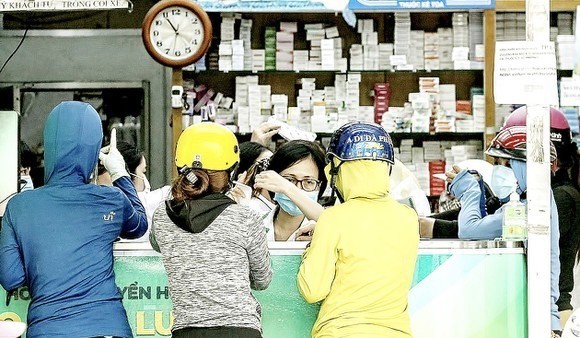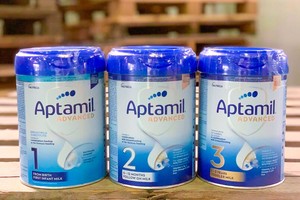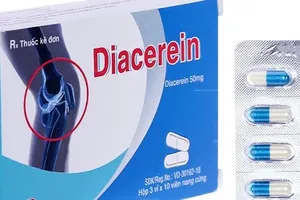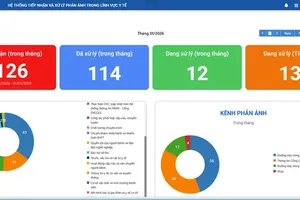 |
HCMC to officially launches medicine subsidy program |
Accordingly, essential drugs for market stabilization include 19 groups of domestically produced drugs with 180 items, accounting for 50 percent of the demand for essential drug groups that city dwellers regularly take such as pain relievers, anti-inflammatory drugs, anti-allergy, diarrhea, stomach pain, cough, cardiovascular medicine, diabetes, antibiotic, anti-inflammatory, eye drops, worm medicine, rheumatism, vitamins - minerals, drugs for external use, drugs to improve cerebral circulation, anti-psychotic disorders, drugs from medicinal herbs.
Drugs in the program will have a lower selling price than the selling price of similar products (with the same active ingredients) on the market at least 5 percent to 10 percent.
The People's Committee of Ho Chi Minh City has directed the Department of Health to coordinate with the Department of Finance, the Department of Industry and Trade, and the Department of Planning and Investment to consider and select units to participate in the program by appraising drug prices, check the price listing and sell at the listed prices of units participating in the stabilization program. Companies participating in the stabilization program were urged to adjust prices when the market has big fluctuations.
This is one of the immediate solutions with the flexible intervention of the state to stabilize the price of drugs - the most essential item. Because public hospitals are constantly short of drugs, the use of drug price subsidies for beneficiaries of social welfare policies especially those who cannot use drugs with market prices higher than those announced by the Ministry of Health is a correct policy.
At the same time, departments must promote the connection of online health insurance payment with the system of private pharmacy chains on the basis of market prices set by retailers in daily updates and approved by authorities to promptly supply drugs when hospital pharmacies are in short supply.
Obviously, to implement this group of short-term solutions, the city government and businesses’ coordination plays a decisive role in resuming the drug supply chain. Specifically, the government supports mechanisms such as establishing a database for suppliers to update regularly, as a basis for comparison and approval of price ranges; plus, the government should pilot a mechanism to connect health insurance payments through the network with the approved private pharmacy chain system. Furthermore, the city will compensate for the difference between the Ministry of Health's price and the updated market price on the city's database.
Businesses should accompany in connecting suppliers or participating in price reviews, providing according to the approved updated market price bracket. Enterprises participating in the program by supplying drugs at the current prescribed prices of the Ministry of Health to those who have been approved by city administrations.
In the medium term, solutions need to be carried out more radically and with more flexibility with a focus on building an open database on generic drug prices and demand in Vietnam. The program is piloted in Ho Chi Minh City.
Specifically, it is necessary to study and evaluate the drug data management system including prices and demand in current public hospitals and collaborate with public-private partners in the development of an open drug data management system. This database should be designed to be open, public and transparent for the public to access to ensure accurate prediction of future drug demand. It is necessary to study and evaluate the drug data management system in public hospitals with comparisons and contrasts from many sources.
Finally, it is a long-term solution with priority given to reviewing problems, mostly related to mechanisms and laws, to propose the Government and the National Assembly to amend and supplement regulations suitable to the country’s present situation of the health sector and the actual operation of public hospitals. Last but not least, medical equipment procurement and bidding should be supported to be implemented quickly.
























